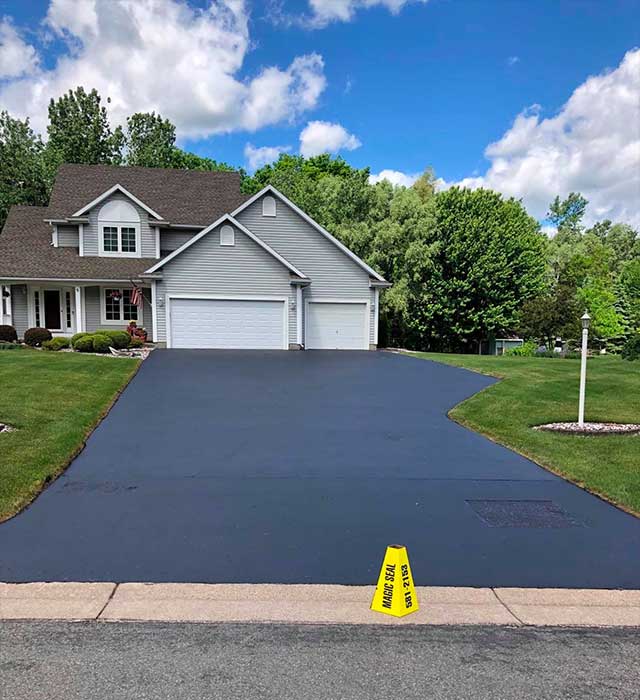Elevate Sidewalk Performance: Cold Mix Asphalt Sealing Tips
Elevate Sidewalk Performance: Cold Mix Asphalt Sealing Tips
Blog Article
Cold Mix Asphalt Vs. Hot Mix Asphalt: Which Is Right for You?
Make-up Differences
Cold mix asphalt is created by emulsifying the asphalt binder with water and an emulsifying representative prior to blending it with aggregate. The hot mix asphalt production process includes heating up the accumulation and asphalt binder independently prior to incorporating them at the asphalt plant.
In addition, cool mix asphalt tends to be less thick and extra adaptable than warm mix asphalt. This adaptability makes it far better matched for locations with greater levels of movement, such as driveways or roadways with rush hour. In contrast, hot mix asphalt is understood for its high resilience and resistance to rutting and fracturing, making it a recommended selection for freeways and high-traffic roadways where durability is vital.
Installation Process Differences
The procedure of mounting chilly mix and warm mix asphalt exhibits remarkable variations in their treatments and requirements. In contrast, hot mix asphalt requires an extra fancy setup process. Due to the heating requirements, hot mix asphalt installments are usually carried out by experts with customized devices, making certain a more structurally sound and irreversible outcome.
Durability and Long Life Elements
When considering asphalt choices, toughness and long life are crucial elements to assess for long lasting pavement performance. Warm mix asphalt (HMA) is understood for its phenomenal durability and long life. The heats throughout the laying and blending process enable better compaction, resulting in a denser and stronger sidewalk framework. This causes HMA being a lot more resistant to rush hour loads, harsh weather, and the results of maturing compared to cold mix asphalt (CMA)
In terms of long life, HMA normally exceeds CMA because of its exceptional strength and resistance buildings. HMA sidewalks have a longer service life, requiring much less frequent repair work and maintenance, which can convert to set you back financial savings in the long run. In addition, HMA pavements are extra quickly customizable to satisfy specific job requirements, additionally enhancing their longevity.
Expense Factors To Consider
Taking into consideration the economic effects is a crucial aspect when evaluating the selection in between warm mix asphalt (HMA) and cold mix asphalt (CMA) for sidewalk jobs. While the initial price of hot mix asphalt is generally greater than that of chilly mix asphalt, HMA frequently offers a more economical solution in the long run due to its superior longevity and durability.
In addition to material costs, it's essential to more info here think about the expenditures linked with installation and upkeep when comparing HMA and CMA. Ultimately, the decision between HMA and CMA ought to take right into account not simply the initial price yet additionally the long-lasting monetary implications to figure out the most economical choice for the details sidewalk task.
Environmental Effect Comparison
Comparison of the environmental impacts in between warm mix asphalt (HMA) and chilly mix asphalt (CMA) discloses unique distinctions in sustainability techniques. HMA production needs high temperature levels, leading to enhanced power consumption and greenhouse gas emissions.
In addition, the usage of CMA typically involves reusing existing asphalt pavement, advertising source preservation and minimizing the quantity of waste sent to garbage dumps. This recycling aspect further enhances the sustainability of CMA compared to HMA. In general, when considering the ecological effect, CMA emerges as a more ecologically lasting selection as a result of its reduced energy needs, decreased emissions, and the possibility for reusing existing materials. By choosing CMA over HMA, roadway building and construction projects can add favorably to ecological preservation initiatives.
Conclusion
Finally, the selection between cool mix asphalt (CMA) and warm mix asphalt (HMA) relies on different aspects such as structure, installation procedure, useful reference longevity, long life, expense, and ecological effect. asphalt patch repair. While CMA provides a quick and economical remedy for minor fixings, HMA makes certain premium longevity and durability for rush hour areas. Consider these aspects carefully to determine which sort of asphalt is the right selection for your paving needs

Considering the economic effects is a crucial element when examining the choice between hot mix asphalt (HMA) and cool mix asphalt (CMA) for pavement tasks. While the initial expense of warm mix asphalt is commonly higher than that of cool mix asphalt, HMA usually gives an extra affordable service in the long run due to its exceptional toughness and durability. asphalt patch repair.Contrast of the environmental influences in between warm mix asphalt check my reference (HMA) and chilly mix asphalt (CMA) exposes distinctive distinctions in sustainability methods.In verdict, the selection between cold mix asphalt (CMA) and warm mix asphalt (HMA) depends on numerous aspects such as composition, setup process, resilience, durability, expense, and ecological effect
Report this page